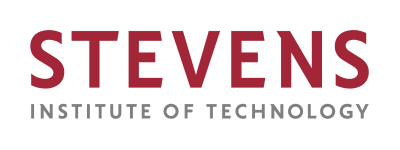
Master in Biomedical Engineering
Stevens Institute of Technology - Graduate Studies

Key Information
Campus location
Hoboken, USA
Languages
English
Study format
On-Campus
Duration
2 years
Pace
Full time, Part time
Tuition fees
USD 18,340 / per semester *
Application deadline
Request info
Earliest start date
Request info
* /semester Full-time Tuition Rate (9-12 credits)
Introduction
Overview
Push the possibilities of biomedical solutions with a degree designed to propel your career.
In the biomedical engineering graduate program at Stevens, you’ll work with recognized leaders in the field, conduct high-impact research and design life-enhancing technology. Our biomedical engineering master’s program graduates thrive in academia, industry, medicine and a range of expanding opportunities in biomedical innovation.
Stevens’ multidisciplinary biomedical engineering program blends advanced study in engineering, biology, life sciences, medicine, clinical applications, and bioethics. We give you the flexibility to pursue the areas of biomedical engineering that interest you most. You’ll investigate emerging areas alongside our actively patenting faculty, test and model new devices in world-class laboratories, and discover how far you can go in an entrepreneurial environment that rewards your scientific rigor and vision.
Our program is design-oriented to help you pursue new technologies from concept through commercialization. And since ideas are only as good as their implementation, we also give you multiple opportunities to work with faculty and industry partners so you leave the program better positioned for success. Whether you’re advancing a current career in biomedical engineering or moving into the field, we’ve structured the program to help you meet your professional goals. After completing our program, students typically find careers in industry, research institutions, and clinical institutions. Additionally, students can use our program as a gateway to professional schools like medical, dental, veterinarian and physical therapy.
Curriculum
The Stevens Advantage
Our Manhattan-adjacent location allows you to build your professional network in New York, a global hub for pharmaceutical, medical research, and technology while exploring nearby biomedical device companies in New Jersey's booming medical and pharmaceutical industries for career opportunities.
Program Features
- Flexible curriculum
- Part-time or full-time enrollment
- Optional research or clinical thesis
- Credit for on-the-job projects with your current employer
- Extensive hands-on laboratory experience
- Research with clinical collaborators
- Evening and online courses available
Areas of Focus
- Biomechanics and Physiology
- Bioinstrumentation and Neural Engineering
- Biomaterials and Tissue Engineering
Program Requirements
- Bachelor’s degree, with a minimum GPA of 3.0, from an accredited institution
- Official college transcripts
- Two letters of recommendation
- A statement of purpose
- TOEFL/IELTS scores (for international students)
- A competitive GRE or GMAT score*
*GRE/GMAT is not required for part-time students.
Ideal Students
Who Should Apply?
We welcome applicants who have a passion for combining engineering and biology to solve complex problems in medicine. You can apply to biomedical engineering with an undergraduate degree in engineering or physics. Such degrees can include but are not limited to, concentrations in biomedical, mechanical, electrical or chemical engineering. The program equally benefits applicants currently working in biomedical engineering or candidates transitioning into the field. We invite students without undergraduate engineering degrees to consider applying to the bioengineering master’s program.
Career Opportunities
Biomedical Engineering Career Opportunities
- Clinical Engineer
- Design Engineer
- Project Engineer
- Quality Control Analyst
- Regulatory Specialist
- Research Scientist
English Language Requirements
Certify your English proficiency with the Duolingo English Test! The DET is a convenient, fast, and affordable online English test accepted by over 4,000 universities (like this one) around the world.